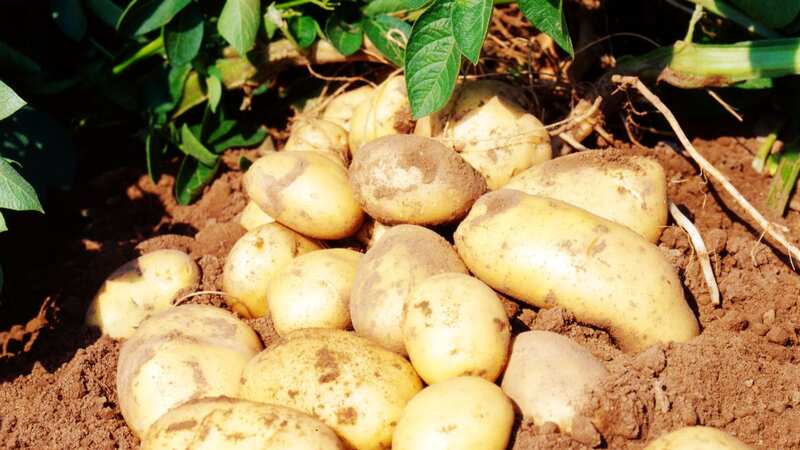Potato supplier seeks alternatives to Maris Piper after floods pushes prices up

One of the UK's top potato suppliers is looking for alternatives to the popular Maris Piper due to rising costs and unreliable crops during extreme weather.
A combination of more floods and droughts has made growing potatoes difficult over the last six years, with smaller profits made worse by higher energy and fertiliser prices. Farmers are having to rethink growing certain types of potatoes that are hard to grow and could lead to financial loss.
Paddy Graham-Jones, who is in charge of buying potatoes for supplier Albert Bartlett, said the Maris Piper, King Edwards and Maris Peer are all being looked at. He said: "A number of varieties are 'customers favourites' King Edwards, Maris Piper, Maris Peer but are hard to grow and so can be risky for growers to produce."
When Maris Pipers were first sold in 1966, they were sold unwashed but now lots of water is needed to clean the skins before packing. "The financial loss of producing a crop of Maris Piper that does not make washed pre-pack grade, can be the difference between profit and loss for a grower," Mr Graham-Jones explained.
The team at Albert Bartlett has been given the job of finding an alternative variety that is better suited to the current climate. Mr Graham-Jones said: "Our agronomy team is working with our retail customers to try and develop alternative varieties that still offer customers great taste, but are easier to grow, require less fertiliser and water, and cope better with the climatic extremes that occur on a more regular basis than they did 20 years ago."
 Plane passengers stuck on flight for 13 hours - only to end up where they began
Plane passengers stuck on flight for 13 hours - only to end up where they began
The price of a Maris Piper 2kg bag at Sainsbury's rose as much as 22.2%, from £1.35 to £1.65, between January 8 and February 12, according to analysis of Assosia data by trade magazine The Grocer. Tesco also saw a rise of 21.3% in the same period while the price increased 10% on average across Lidl, Waitrose, Aldi, Tesco and Sainsbury's.
A Sainsbury's spokesperson said: "While prices can go up and down for a range of reasons, we're committed to offering our customers great choice and value when they shop with us. We offer a variety of potatoes including a 2kg bag of white potatoes for £1.29p."
Tim Rooke, chairman of the National Farmers Union (NFU) potato policy group, said the root cause of potato price rises dates back to a drought in the summer of 2022, when potatoes intended for storage were brought to market to prop up supply. He said: "The potato yield was considerably less than it should have been and the country nearly ran out of potatoes. When the crop ran out the prices got very high, so many farmers decided to sell early to recoup some of the money lost."
Potatoes are usually planted in March and April but a wet spring in 2023 delayed planting until late April which further depleted stocks. "From planting three weeks late, the crop was never going to yield to its full potential," said Mr Rooke of the autumn 2023 harvest, which was also blighted by a series of storms and floods. "Potatoes could not be lifted because it was too wet and consequently there are potatoes left in the fields. It has been a perfect storm really."
In her final speech as NFU president on Tuesday, Minette Batters called for action to improve "water security" She told the NFU annual conference: "We must pay farmers for storing flood water on their land. We must speed up planning for on-farm reservoirs to store water for crop irrigation. Water security must underpin national food security."
The creation of more resilient varieties of potato has been floated as a more practical alternative to battling the weather and lobbying the Government. Martin Emmett, chairman of the NFU horticulture and potatoes board, told the PA news agency that more investment was needed in water management structures.
He added: "There is a new demand for plant breeding which is matching the change we are seeing in the climate. We do need to maintain and develop our plant breeding programme."
New variety breeding is not without its own challenges, as there are limitations in sourcing seeds. Mr Rooke added: "We cannot bring seeds into this country from abroad since Brexit. New variety breeding will not happen in this country until we get some sort of seed deal with Europe."
Read more similar news:
Comments:
comments powered by Disqus

































